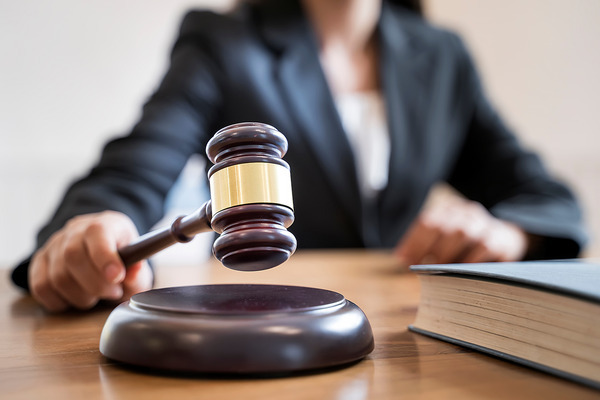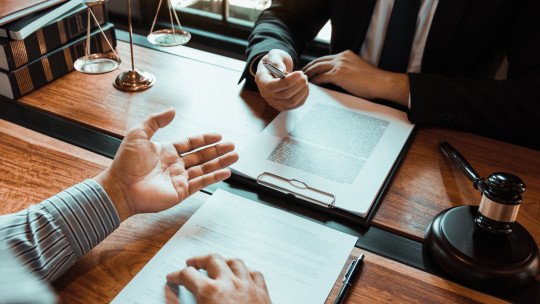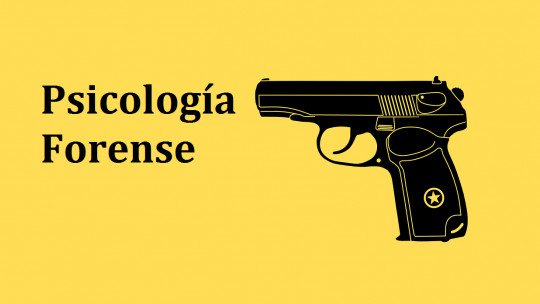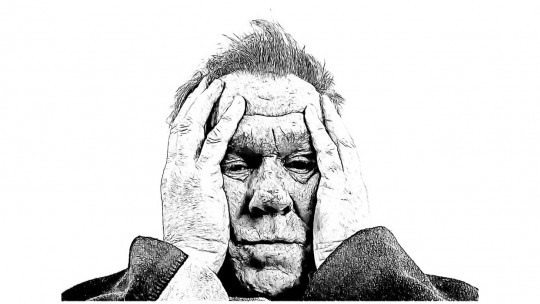In a trial, psychological expert evidence can play a very relevant role in your opinion. Discover how expert tests are carried out with the work of a forensic psychologist.

In many cases a expert evidence It is vital to determine the evaluation in court. The figure of the expert or the forensic psychologist is responsible for giving the judge the expert evidence that they collect through a lot of work and caution around the courts. In this way, expert evidence is one of the main tools that the judge uses to evaluate a case. But how is it done and what does it consist of?
What is expert evidence?
The expert evidence It is mainly used to help a court resolve a ruling in a case in which matters are involved in which the judge does not have certain technical or specialized knowledge that may be vital to prove or not certain acts.
For this reason, the psychological expert tests They are prepared by a professional in the psychological field, that is, a forensic psychologist. In many cases, expert evidence can change the ruling of a trial due to everything that can be contributed to it.
In the expert evidence or in an expert opinion The role of the forensic psychologist is to help a court make a correct decision by providing a completely independent expert analysis and opinion on different facts based on all his psychological knowledge. Therefore, the expert evidence must provide all the details necessary to convince a judge about the investigations carried out by the psychological expert.
How is a psychological expert test performed?
In those cases where a psychological evaluation is required, the expert test will be developed by a professional psychologist specialized in this field. Therefore, these functions are performed by a Forensic Psychologist, that is, a professional focused on the legal field and psychology. At the time of performing the expert evidence you will need to follow the following steps.
1. Responsibility
Forensic Psychologists must provide their services in such a way that they aspire to excellence in their responsibility and candor in their work. The expert evidence They are very important during the evaluation in court, for this reason psychologists assume a lot of responsibility for their services.
2. Competition
Forensic Psychologists will provide their professional services in the areas of psychology in which they have knowledge, practice and competence to carry out a expert evidence They must understand the legal framework of their actions before the Courts and the rights of the people evaluated, taking care not to violate such rights. They will assess whether they should intervene as an expert witness or to carry out judicial expert evidence in those cases that, by their nature, contradict their personal values or moral beliefs, in which such circumstance may interfere with their ability and competence.

3. Relationships with clients and other professionals
Forensic Psychologists must inform clients of the basic characteristics of the established relationship, presenting at least: their competencies, the objective of the evaluation, the basic methodology to be used, and who will be the recipient of the information collected. In order to be able to work freely and independently, when carrying out any of these expert evidence they will request provision of funds, preventing their remuneration from being contingent on the results of their task.
They will avoid dual relationships, remembering the causes of recusal established by law, and rejecting incompatible jobs, such as previous circumstances of friendship or enmity, kinship or pre-existing professional relationship. This is one of the limitations of the psychological experts In other professions, your friends, neighbors and family can become clients at some point in your career. In the case of psychologist experts, they cannot carry out expert opinions on friends, family or acquaintances with whom we have open friendship or enmity.
4. Confidentiality
Forensic psychologists must inform the client at the beginning of the psychological expert regarding the limitations of confidentiality that apply in the case, they will in any case avoid revealing information that is outside the scope of the forensic evaluation.
5. Methodology and procedures
Forensic psychologists have the duty to update their scientific knowledge in those areas in which they are considered competent, using the methodology supported by the scientific and professional standards of psychology. During the performance of a expert evidence psychologists are especially meticulous in recording the data collected, since these must be able to be provided to the judicial authority at the time it is requested.
That is why when the expert evidence These professionals will refrain from making evaluations on people not directly evaluated, attempting to carry out such evaluations when considered necessary, with the agreement of those legitimately affected or requesting it from the competent judge, particularly when dealing with minors. If, despite the effort, it proves unfeasible, the possible limitations will be reflected in the results.
6. Communication with the public and other professionals
Forensic psychologists will strive to report their findings in an understandable manner, considering the characteristics of the recipients of said information and avoiding misinterpretations as much as possible. Their role as experts is to help the Court understand the evidence and facilitate decision-making. Their assessments and conclusions represent our profession, which requires them to maintain special responsibility, honesty and accuracy with their public statements.

7. Principle of Non-Intervention / Minimum Intervention
This principle refers to the need to reduce the number of interventions with minors to a minimum to prevent revictimization or secondary victimization from occurring. In this sense, repetition of examinations, carrying out an excessive number of sessions and the application of unnecessary techniques and tests should be avoided whenever possible. The total number of interviews to carry out the expert evidence It will range between two and six, depending on the age of the minor and the situation in which they find themselves.
8. No secret of confidentiality
The forensic psychologist has the obligation, by law, to provide all the information collected and relevant to the study for which he or she has been requested. Therefore, during the expert evidence You must provide all the data that has been requested.
9. Informed consent to parent/guardians
When proceeding to psychologically explore a minor to carry out a expert evidence or expert opinion, the minor and his or her parents/guardians must be informed in a comprehensible manner of the following issues: the characteristics of the evaluation, its purpose, its implications, the limits of the information and the subsequent management of the information obtained. The informed consent signed by the parents/guardians of the minor will serve as a guarantee to the psychologist expert that said information has been provided and accepted in advance.
How can we see the psychological expert tests They are reports that are prepared by true professionals. On many occasions this opinion can have a very important meaning during the conduct of a trial. So much so that it can change the perspective of a crucial judicial decision.








